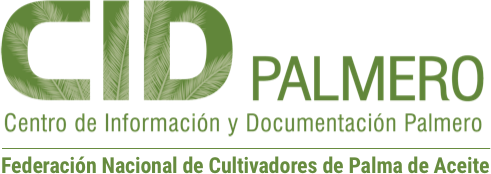| dc.creator | Laguna L., Julio C. | |
| dc.creator | González T., Jaime | |
| dc.date | 2007-01-01 | |
| dc.date.accessioned | 2020-07-25T11:19:13Z | |
| dc.date.available | 2020-07-25T11:19:13Z | |
| dc.identifier | https://publicaciones.fedepalma.org/index.php/palmas/article/view/1213 | |
| dc.identifier.uri | http://repositorio.fedepalma.org/handle/123456789/139840 | |
| dc.description | The Colombian palm oil market faced a sharp appreciation of the Colombian peso in 2006, which adversely affected the incomes of oil palm growers. However, the record-high international prices for animal and plant oils and fats and the good consumption dynamics of palm and kernel oils in Colombia, contributed to the good performance of the oil palm sector. The sector will face huge challenges in the future such as the increased supply of palm oil, the growing local demand driven by the biodiesel market, the development of logistics for the new biodiesel market, and the businesses' commitment to corporate responsibility principles. There are also great opportunities in the international market, especially in the United States, because the Free Trade Agreement, when it comes into effect, will provide better access conditions for processed goods and biodiesel. In terms of health, palm oil has a great competitive advantage compared to other oilseeds (soybean, sunflower, etc.) that must be subjected to a hydrogenation process to make them more stable and harder, as this process produces trans fatty acids which adversely affect human health. Therefore, the challenge is to make full use of these advantages to find new markets for the Colombian palm oil | en-US |
| dc.description | La comercialización del sector palmero Colombiano durante 2006 enfrentó la aguda revaluación del peso Colombiano que deterioró de manera considerable los ingresos del palmicultor. Por el contrario, los niveles altos y récord de los precios internacionales de los aceites y grasas animales y vegetales y, la buena dinámica del consumo de aceite de palma y de palmiste en Colombia contribuyeron al buen suceso del sector. Este enfrentará grandes retos en el futuro como son: el crecimiento de la oferta de aceite de palma, la mayor demanda local jalonada por el mercado del biodiesel, el desarrollo de la logística que implica el nuevo mercado del biodiesel y el compromiso empresarial con los principios de responsabilidad social. También existen grandes oportunidades en el mercado internacional, especialmente en Estados Unidos, por las mejores condiciones de acceso para bienes procesados y para el biodiesel con el Tratado de Libre comercio en el momento que entre en vigencia. En el tema de salud, el aceite de palma presenta una gran ventaja competitiva frente a los aceites de semillas oleaginosas (soya, girasol, etc.) que deben ser sometidas a un proceso de hidrogenación para darles mayor estabilidad o endurecerlos, dando lugar a los ácidos grasos trans que inciden negativamente en la salud humana, por lo que el reto consiste en poder traducir estas ventajas en nuevos mercados para el aceite de palma Colombiano. | es-ES |
| dc.format | application/pdf | |
| dc.language | spa | |
| dc.publisher | Fedepalma | es-ES |
| dc.relation | https://publicaciones.fedepalma.org/index.php/palmas/article/view/1213/1213 | |
| dc.rights | Derechos de autor 2017 Revista Palmas | es-ES |
| dc.rights | https://creativecommons.org/licenses/by-nc-nd/4.0 | es-ES |
| dc.source | Revista Palmas; Vol. 28 Núm. 2 (2007); 64-79 | es-ES |
| dc.source | 0121-2923 | |
| dc.subject | aceite de palma | es-ES |
| dc.subject | comercialización | es-ES |
| dc.subject | mercados | es-ES |
| dc.subject | competitividad | es-ES |
| dc.subject | desarrollo económico y social | es-ES |
| dc.subject | desarrollo sostenible | es-ES |
| dc.subject | oferta y demanda | es-ES |
| dc.title | Evaluation and Outlook of the Colombian Palm oil Market | en-US |
| dc.title | Evaluación y perspectivas de la comercialización del sector palmero Colombiano | es-ES |
| dc.type | info:eu-repo/semantics/article | |
| dc.type | info:eu-repo/semantics/publishedVersion | |


